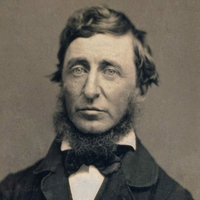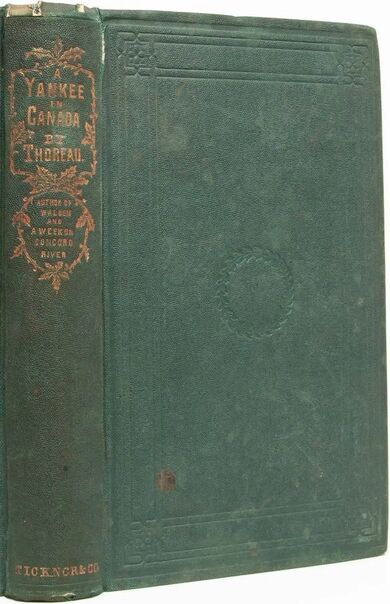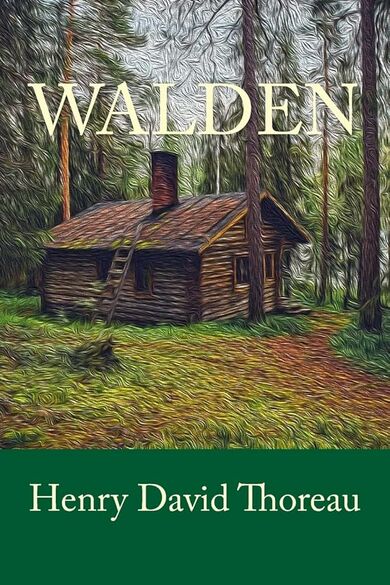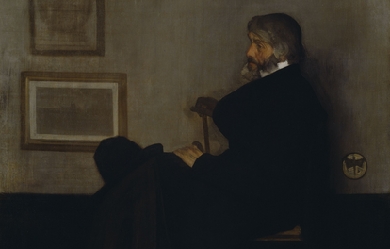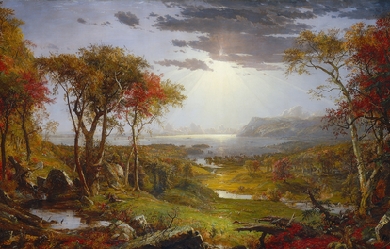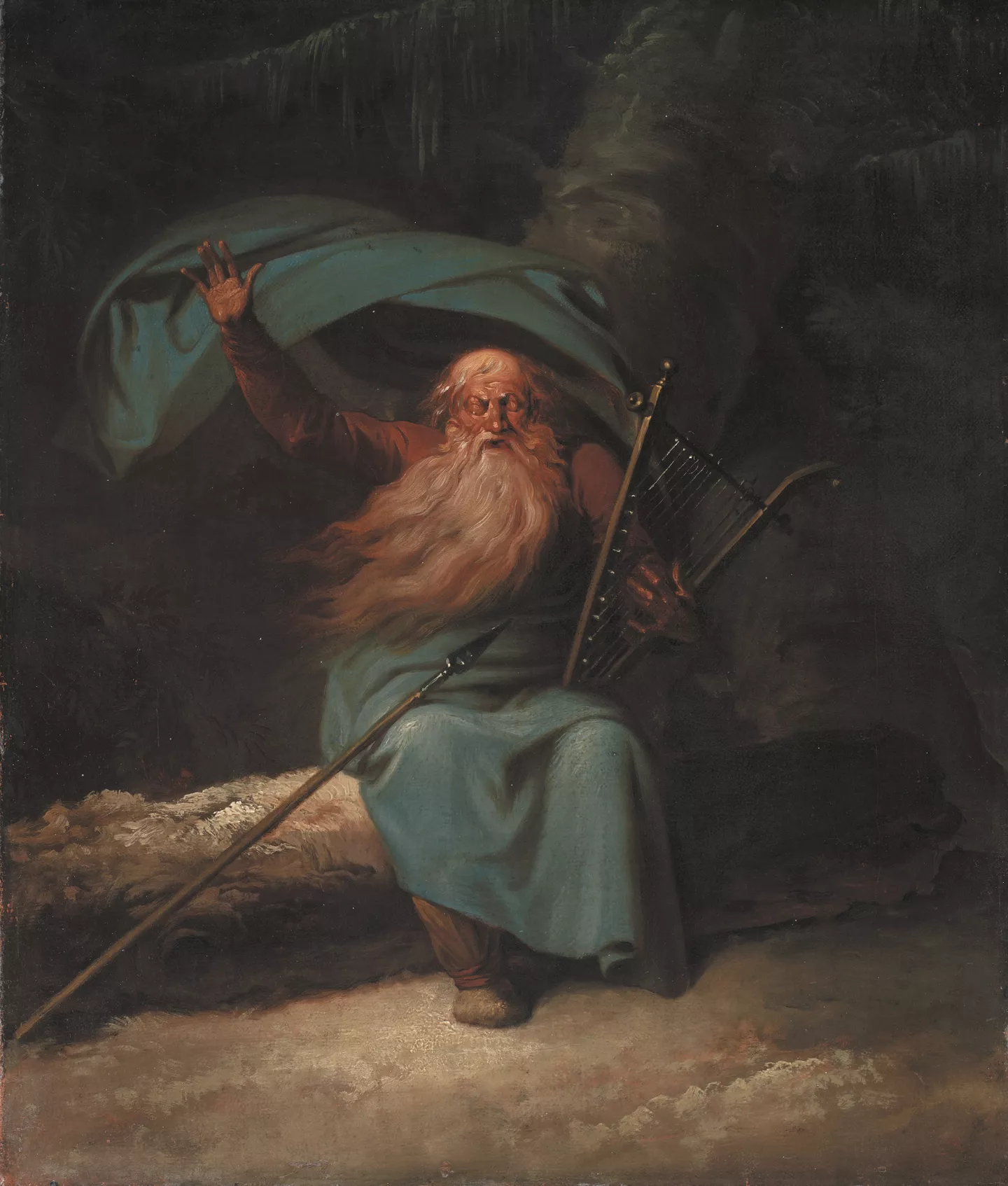
The genuine remains of Ossian, though of less fame and extent, are in many respects of the same stamp with the Iliad itself. He asserts the dignity of the bard no less than Homer, and in his era we hear of no other priest than he. It will not avail to call him a heathen because he personifies the sun and addresses it; and what if his heroes did “worship the ghosts of their father,” their thin, airy, and unsubstantial forms? we but worship the ghosts of our fathers in more substantial forms. We cannot but respect the vigorous faith of those heathen, who sternly believed somewhat, and are inclined to say to the critics, who are offended by their superstitious rites, don’t interrupt these men’s prayers. As if we knew more about human life and a god, than the heathen and ancients. Does English theology contain the recent discoveries?
Ossian reminds us of the most refined and rudest eras, of Homer, Pindar, Isaiah, and the American Indian. In his poetry, as in Homer’s, only the simplest and most enduring features of humanity are seen, such essential parts of a man as Stonehenge exhibits of a temple; we see the circles of stone, and the upright shaft alone. The phenomena of life acquire almost an unreal and gigantic size seen through his mists. Like all older and grander poetry, it is distinguished by the few elements in the lives of its heroes. They stand on the heath, between the stars and the earth, shrunk to the bones and sinews. The earth is a boundless plain for their deeds. They lead such a simple, dry, and everlasting life, as hardly needs depart with the flest, but is transmitted entire from age to age. There are but few objects to distract their sight, and their life is as unencumbered as the course of the stars they gaze at.
Look forward from behind their shields,
And mark the wandering stars,
That brilliant westward move.
It does not cost much for these heroes to live. They want not much furniture. They are such forms of men only as can be seen afar through the mist, and have no costume nor dialect, but for language there is the tongue itself, and for costume there are always the skins of beasts and the bark of trees to be had. They live out their years by the vigor of their constitutions. They survive storms and the spears of their foes, and perform a few heroic deeds, and then,
For many future years.”
Blind and infirm, they spend the remnant of their days listening to the lays of the bards, and feeling the weapons which laid their enemies low, and when at length they die, by a convulsion of nature, the bard allows a short misty glance into futurity, yet as clear, perchance, as their lives had been. When Mac-Roine was slain,
To follow misty forms of boars
In tempestuous islands bleak.”
The hero’s cairn is erected, and the bard sings a brief significant strain, which will suffice for epitaph and biography.
The feeble will attempt to bend it.”
Compared with this simple, fibrous life, our civilized history appears the chronicle of debility, of fashion, and the arts of luxury. But the civilized man misses no real refinement in the poetry of the rudest era. It reminds him that civilization does but dress men. It makes shoes, but it does not toughen the soles of the feet. It makes cloth of finer texture, but it does not touch the skin. Inside the civilized man stands the savage still in the place of honor. We are those blue-eyed, yellow-haired Saxons, those slender, dark-haired Normans.
The profession of the bard attracted more respect in those days from the importance attached to fame. It was his province to record the deeds of heroes. When Ossian hears the traditions of inferior bards, he exclaims,
And send them down in faithful verse.”
His philosophy of life is expressed in the opening of the third Duan of “Ca-Lodin.”
And whither roll the passing years?
Where does time conceal its two heads,
In dense impenetrable gloom,
Its surface marked with heroes’ deeds alone?
I view the generations gone;
The past appears but dim;
As objects by the moon’s faint beams,
Reflected from a distant lake.
I see, indeed, the thunder-bolts of war,
But there the unmighty joyless dwell,
All those who send not down their deeds
To far, succeeding times.”
The ignoble warriors die and are forgotten;
And throw their ashes over hand;
Somoe rusted swords appear in dust;
One, bending forward, says,
‘The arms belonged to heroes gone;
We never heard their praise in song.’”
The grandeur of the similes is another feature which characterizes great poetry. Ossian seems to speak a gigantic and universal language. The images and pictures occupy even much space in the landscape, as if they could be seen only from the sides of mountains, and plains with a wide horizon, or across arms of the sea. The machinery is so massive that it cannot be less than natural. Oivana says to the spirit of her father, “Gey-haired Torkil of Torne,” seen in the skies,
So when the hosts of Fingal and Starne approach to battle,
The race of Torne hither moved.”
And when compelled to retire,
Cudulin sank in the distang wood,
Like a fie upblazing ere it dies.”
Nor did Fingal want a proper audience when he spoke;
To hear the lay of Fingal.”
The threats too would have deterred a man. Vengeance and terror were real. Trenmore threatens the young warrior, whom he meets on a foreign strand,
While lessening on the waves she spies
The sails of him who slew her son.”
If Ossian’s heroes weep, it is from excess of strength, and not from weakness, a sacrifice or libation of fertile natures, like the perspiration of stone in summer’s heat. We hardly know that tears have been shed, and it seems as if weeping were proper only for babes and heroes. Their joy and their sorrow are made of one stuff, like rain and snow, the rainbow and the mist. When Fillan was worsted in fight, and ashamed in the presence of Fingal,
And bent in grief above a stream,
His cheeks bedewed with tears.
From time to time the thistles gray
He lopped with his inverted lance.”
Crodar, blind and old, receives Ossian, son of Fingal, who comes to aid him in war,
Is thy strength like that of thy fathers?
Stretch, Ossian, thine arm to the hoary-haired.’
I gave my arm to the king.
The aged hero seized my hand;
He heaved a heavy sigh;
Tears flowed incessant down his cheek.
‘Strong art though, son of the mighty,
Though not so dreadful as Morven’s prince.
Let every sweet-voiced minstrel sing;
Great is he who is within my wall,
Sons of wave-echoing Croma.’”
Even Ossian himself, the hero-bard, pays tribute to the superior strength of his father Fingal.
Why succeeded Ossian without its strength?”


